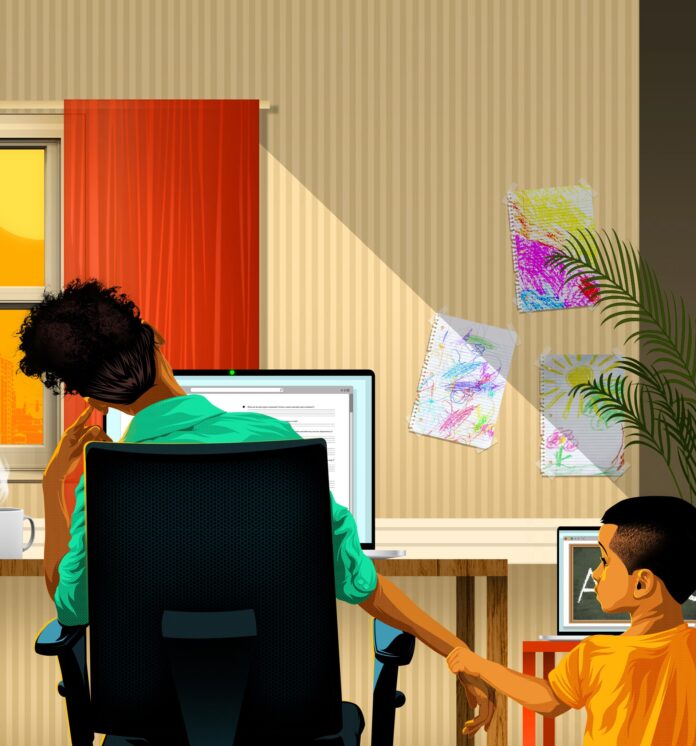This article takes a deep dive into the real struggle that working parents are having trying to keep the family financially afloat while also taking charge of their childrens’ education. It brings up a lot of deep-rooted issues that I hadn’t even thought of before, and it shows a raw first-person perspective of just how exhausted, overwhelmed, and upset working parents are. This issue goes a bit beyond the online learning of children, but to me it is one of the most perplexing and saddening ‘side-effects’ of the pandemic. Whatever approach I end up taking to address the issues surrounding online schooling, it must start with the assumption that the child won’t have a parent or caregiver to hold their hand throughout the school day.
This can further apply to certain children who would perform much better in online/homeschooling, but the parents lack the financial capability to have someone at home with them to make that possible.
—
Perelman, Deb. “In the Covid-19 Economy, You Can Have a Kid or a Job. You Can’t Have Both.” The New York Times, 8 July 2020, https://www.nytimes.com/2020/07/02/business/covid-economy-parents-kids-career-homeschooling.html.
“…my children will be able to physically attend school one out of every three weeks. At the same time, many adults. . . are supposed to be back at work as the economy re-opens. . . Let me say the quiet part loud: In the Covid-19 economy, you’re allowed only a kid or a job.
“I resent articles that view the struggle of working parents this year as an emotional concern. We are not burned out because life is hard this year. We are burned out because we are being rolled over by the wheels of an economy that has bafflingly declared working parents inessential.”
Part-time teachers, full-time parents
“For context, let me tell you how the last few months have been for my family. . .
” . . . my husband was put on furlough. He took over home schooling and basically everything else as I became the sole breadwinner, trying to work as hard as I could, at every hour. Last week, he was fully laid off.
“Despite our own financial strain, we’ve continued to pay the nanny who used to help shuttle the kids around while we worked, even though she hasn’t worked for us since March. Even if we asked for her help in home schooling our children this fall, who would do so for her school-age children? When will my husband be able to look for work? How can he go back to work if there’s no one to watch the kids? . . .
“And I speak from a position of significant privilege. We were, until recently, a two-income family with savings . . . There are so many ways that the situation we’ve been thrust into, in which businesses are planning to reopen without any conversation about the repercussions on families with school-age children, is even more untenable for others.”
“The long-term losses for professional adults will be incalculable, too, and will disproportionately affect mothers. Working mothers all over the country feel that they’re being pushed out of the labor force or into part-time jobs as their responsibilities at home have increased tenfold.”
“Teachers are supposed to teach in the classroom full-time but simultaneously manage remote learning? Even in non-pandemic times, teachers would tell you that they already work unpaid overtime on nights and weekends, just planning and grading. Where, exactly, will the extra hours come from? For teachers with their own school-age children, the situation isn’t just untenable, it’s impossible.”
The Weathy Win. Again.
“But after nearly four months since the lockdowns began — four months of working all hours, at remarkable stress levels, while our children have gone without play dates and playgrounds and all of the other stimuli that help them thrive — most parents have been shocked to find that state governments don’t have any creative or even plausible solutions.
“For parents who cannot simply sort it out, our national response feels more like a dystopian novel where only the wealthy get to limit their exposure and survive the pandemic unscathed. Allowing workplaces to reopen while schools, camps and day cares remain closed tells a generation of working parents that it’s fine if they lose their jobs, insurance and livelihoods in the process. It’s outrageous, and I fear if we don’t make the loudest amount of noise possible over this, we will be erased from the economy.”




